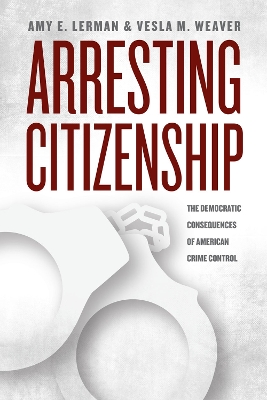Chicago Studies in American Politics (CHUP)
1 total work
One-third of America's adult population has passed through the criminal justice system and now has a criminal record. Many more have never been convicted, but are still subject to surveillance by the state. Never before has the government maintained so vast a network of institutions dedicated solely to the control and confinement of its citizens. A provocative assessment of the contemporary carceral state, Arresting Citizenship argues that the broad reach of the criminal justice system has recast the relation between citizen and state, resulting in a sizable-and growing-group of second-class citizens. From police stops to court cases and incarceration, at each stage of the criminal justice system, disempowered individuals belonging to this group experience a state-within-a-state that reflects few of the country's core democratic values. The authors show how this contact with police, courts, and prisons decreases faith in the capacity of American political institutions to respond to citizens' concerns and diminishes the sense of equal citizenship - even for those not found guilty of any crime.
They go on to offer concrete proposals for reforms to reincorporate this large group of citizens as active participants in American political life.
They go on to offer concrete proposals for reforms to reincorporate this large group of citizens as active participants in American political life.
